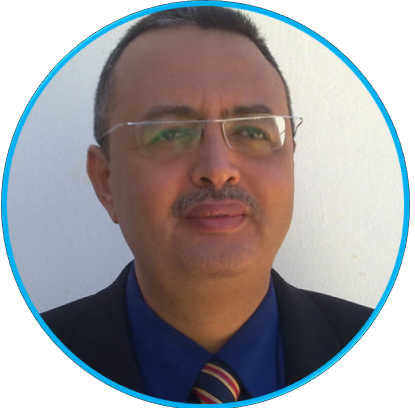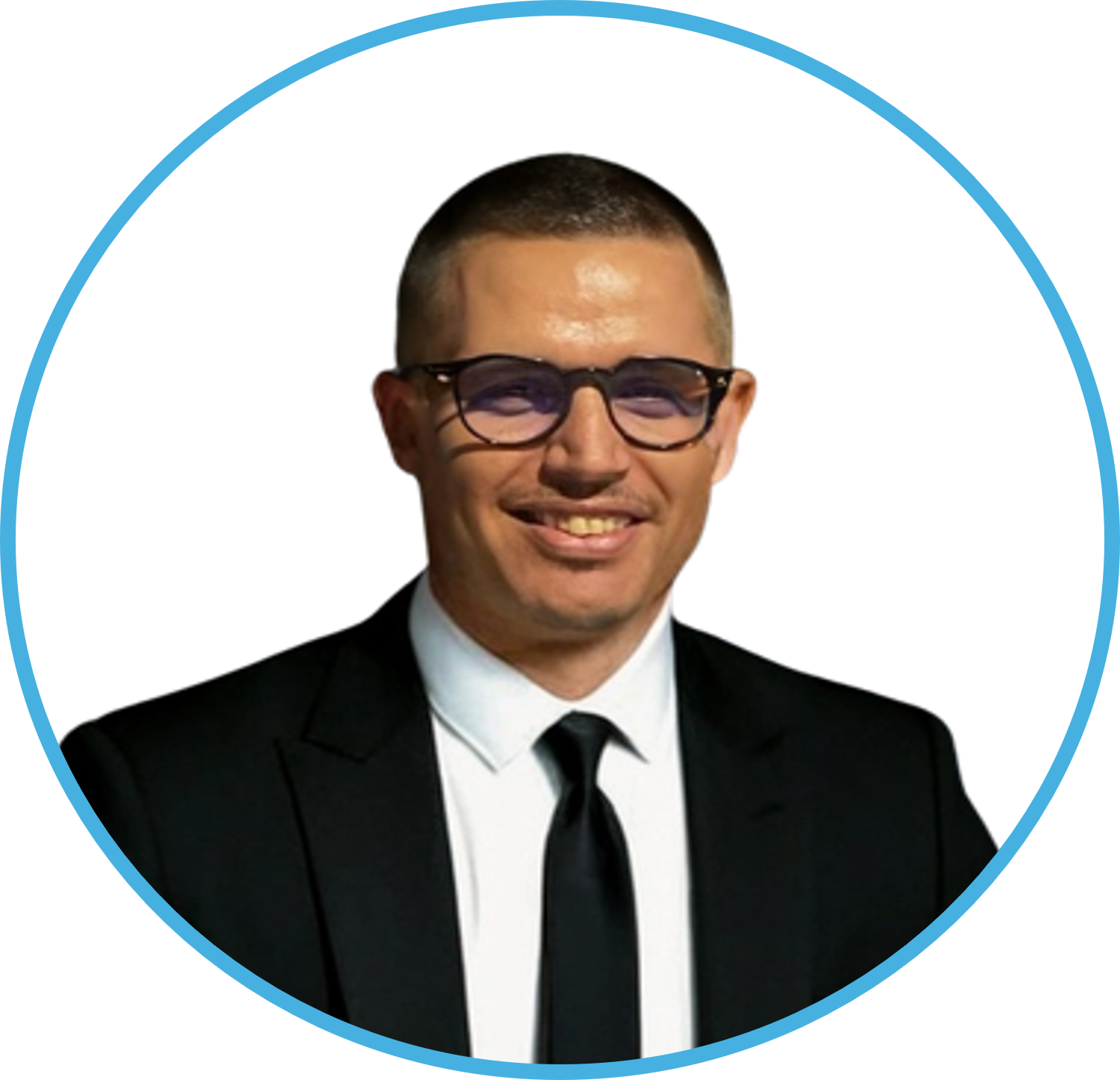
Keynotes
- Home
- Keynotes

National Engineering School of Sfax, Tunisia
Title: Deep Learning for Parkinson's Disease Detection from Handwriting
Abstract: Deep Learning for Parkinson's Disease Detection from Handwriting.
Speaker bio: * obtained a PhD (1995, from Ecole Polytechnique of Montreal, Canada) in Electrical & Computer Engineering; * is Full Professor in Electrical Engineering (since 2006) at the National Engineering School of Sfax (ENIS, University of Sfax, Tunisia); * is Distinguished Visiting Professor (since 2024) at the University of Johannesburg, South Africa (Faculty of Engineering & the Built Environment, Dpt. Electrical & Electronic Engineering Science) ; * is Founder and was Director (1997-2021) of the research REGIM Lab in intelligent Machines, University of Sfax; * h-index / Citations (Scopus) = 45 / 10.4+k * 213+ Scientific Journal Papers, 549+ Scientific Conference Papers, 126+ PhD Thesis defended, 20+ Tunisian patents * managed scientific projects: 10+ national scientific projects, 30+ international scientific projects, and 2.8+M TND & 1.5+M € total managed funds. Prof. Alimi served as Associate Editor for Scientific Journals, & as Guest Editor for Scientific Journals Special Issues, & as Chair of international conferences. Prof. Alimi received the following Awards: * International Neural Network Society (INNS) Award for contribution on Neural Networks, 2008 * Europe Prize of the European Union Delegation at the 1st World Cup of invention and Scientific Research, 2022 * Tunisian Presidency Award for Scientific Research and Technology, 2010 * Tunisian National Order of Merit, at the title of the Education and Science Sector, 2006.

National School of Applied Sciences of Khouribga, Morocco
Title: Cybersecurity 2.0: How Generative AI is Redefining Digital Defenses
Abstract: The rapid rise of Generative Artificial Intelligence (GenAI) marks a turning point in the evolution of cybersecurity. While traditional AI techniques have long enhanced detection and response, the new generation of generative models is transforming both the offensive and defensive landscapes of digital security. This keynote, Cybersecurity 2.0: How Generative AI is Redefining Digital Defenses, explores how large language models and diffusion-based systems are reshaping cyber defense architectures, threat intelligence, and incident response. We will examine the current challenges facing cybersecurity—data overload, complex attack surfaces, and human skill gaps—and illustrate how GenAI-powered applications are enabling adaptive threat analysis, automated vulnerability discovery, and AI-augmented Security Operations Centers. At the same time, the session exposes the dark side of GenAI, from automated social-engineering campaigns and deepfake-driven misinformation to the emergence of PromptWare, a new class of AI-generated malicious content. By contrasting “the good” and “the bad” of GenAI in cybersecurity, the keynote highlights the urgent need for ethical governance, explainability, and resilient AI frameworks. It concludes with a forward-looking vision of Cybersecurity 2.0—an era of predictive, autonomous, and intelligence-driven digital defense powered by responsible generative technologies. .
Speaker bio: 14+ years of experience in ICT Double Ph.D. degrees in Computer Sciences and Management Professor of Cybersecurity ENSA Khouribga Affiliate Professor, UM6P Former CISO at The National Port Agency, Casablanca Founding President of the African Research Center of Information Technology & Cybersecurity Editor in Chief: International Journal of Information Security and Privacy (IJISP) (Scopus)/WoS) +200 publications Scopus/WoS Among Stanford list of the World's Top 2% Scientist, 2024-2025 Clarivate Analytics Publons Peer reviewers Award: 2018 and 2019 Top 10 Moroccan researchers in Computer Sciences (CNRST): 2019-2023 .

Professor, Taif University,KSA
Title: Revolutionizing Autonomous Aerial Operations
Abstract: This keynote addresses the burgeoning advancements in Artificial Intelligence (AI) and their transformative impact on Unmanned Aerial Vehicles (UAVs), encompassing both drones and high-altitude balloons. I will explore the latest AI technologies enabling unprecedented levels of autonomy, efficiency, and intelligence in aerial platforms, leading to a new era of smart applications across diverse sectors. Recent breakthroughs in onboard AI processing are shifting the paradigm from purely remote-controlled UAVs to highly autonomous systems. Key developments include:
Speaker bio: He is an Associate Professor in Wireless Communications and Drones at the Computer Engineering Department at Taif University, Saudi Arabia, a research fellow in the Dep. of Electronic and Computer Engineering at Brunel University London, UK. He holds a BSc in Computer Engineering from Taif University, an MSc in Broadband and Mobile Communication Networks from Kent University and a PhD in Wireless Communication Networks from Brunel University London. Worked at Google Developer Group in Reading, UK in 2018. He is a member of the IEEE Communication Society. He is a reviewer for many respected journals and publishers, including Springer, IEEE, Elsevier, and Oxford Press. His research interests UAVs & Satellites and their applications in Ad hoc wireless networks. Besides, topics related to AI, IoMT, ML, and Emerging Trends & Applications. Published more than 100 scientific research articles and 1 book and participated in 4 specialized books. Additionally, he published an enrichment book on Volunteerism and Social Entrepreneurship. He secured 3 research grants from the Deanship of Scientific Research at Taif University. Joined a Stanford’s global list of the top 2% of the world’s scientists for the years 2022 to 2024. Also, he was awarded the best research award many times at IEEE conferences worldwide..